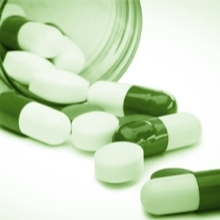Antimicrobial resistance networking workshop
25 Jun - Charles Darwin House, London, UK
The Learned Society Partnership on Antimicrobial Resistance held three interdisciplinary networking workshops to bring together researchers from all career stages. The first of these workshops was held in London.

Overview
The Learned Society Partnership on Antimicrobial Resistance (AMR) held three interdisciplinary networking workshops to bring together researchers, from all career stages, who have an interest in fundamental or translational research relating to the evolution and transmission of AMR.
AMR is a global health threat. A better understanding of how different environments, and their uses, affect the evolution and transmission of resistance is key to tackling AMR. These environments include: animal and human host tissues; hospitals and urban environments; and agricultural and natural settings.
Multidisciplinary research and knowledge exchange across medicine, the life sciences, physical sciences, engineering, social sciences, agricultural and veterinary sciences will be vital for closing this knowledge gap and translating research into applications to tackle AMR.
Why attend?
- Network with other researchers who work on different aspects of AMR in your own field and other scientific disciplines.
- Learn about the funding options and routes available to AMR researchers, including Theme 3 of the AMR Cross-Council Initiative.
- Meet both early-career researchers and established researchers in the field.
- Link up with researchers across the country.
- Find out what learned societies are doing to address AMR and how they can help you increase the impact of your research.







Programme
Chaired by Professor Jodi Lindsay, St George’s, University of London.
11.30 – 12.00
Registration and coffee
12.00 – 12.10
Welcome from the Chair
12.10 – 12.35
AMR Cross-Council Initiative - new ways of working
Dr Ghada Zoubiane, Medical Research Council
12.35 – 13.00
The environmental dimension of AMR
Dr William Gaze, University of Exeter
13.00 – 14.10
Lunch and poster session
14.10 – 14.35
AMR in the clinical environment
Dr David Wareham, Queen Mary of University
14.35 – 15.00
Engineering the built environment to address the AMR challenge
Dr Lena Ciric, University College London
15.00 – 16.50
Open discussion and networking session
16.50 – 17.00
Closing remarks
17.00 – 18.00
Networking reception
Apply to attend
Applications for this workshop are now closed.
Successful applicants will be contacted by Friday 29 May 2015.
All enquiries should be directed to Paul Richards ([email protected] Tel. 020 7685 2542).
